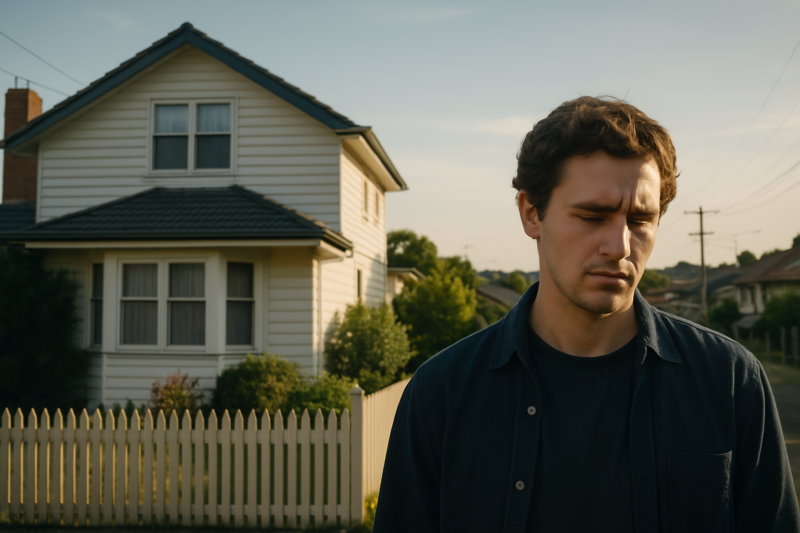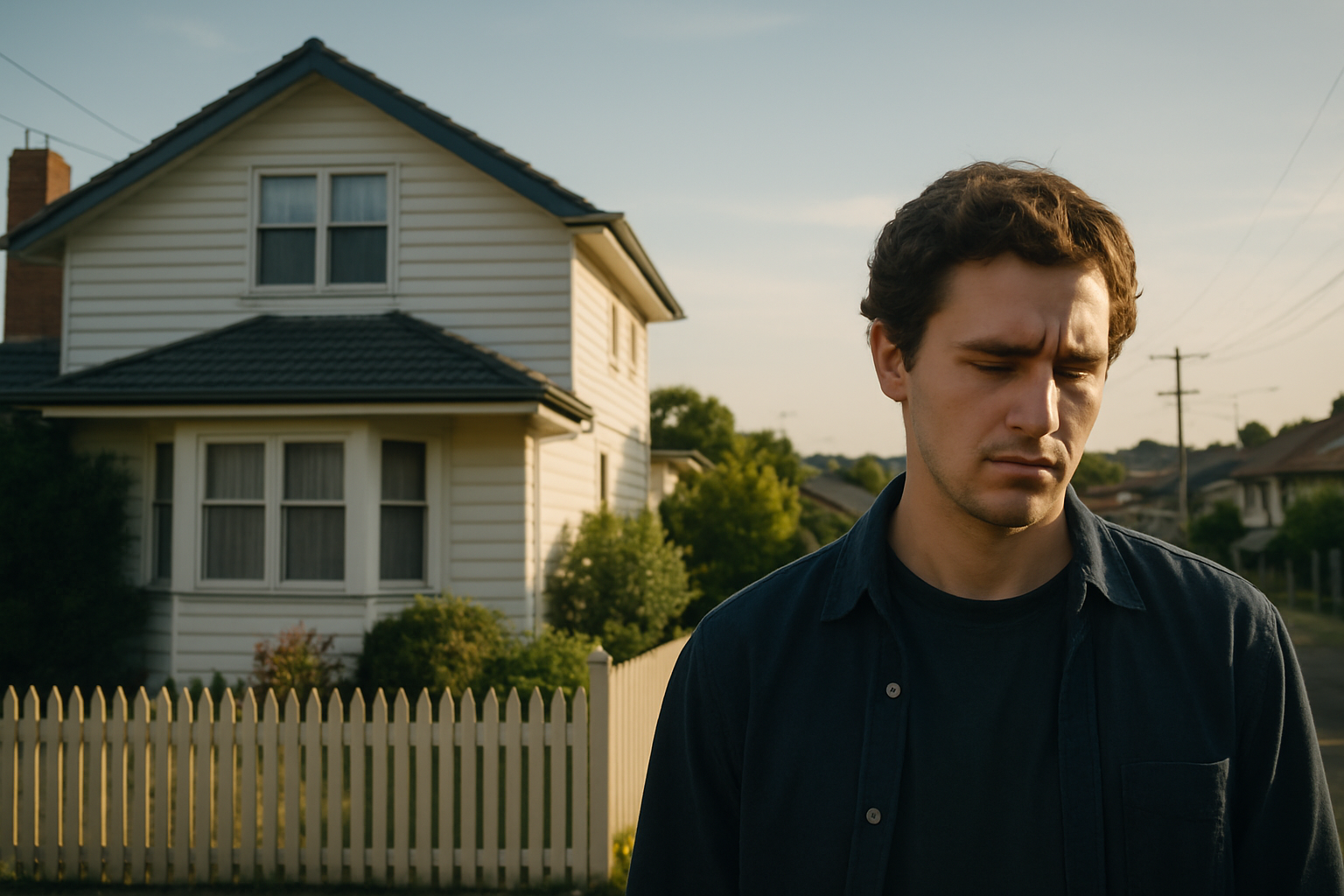
Key takeaways
Standard income measures often don’t count the less obvious benefits of owning your home—like living rent-free or growing equity tax-free—but these advantages have long supported financial independence and security.
Including these benefits shows a wider gap between owners and renters—not to single out homeowners as the problem—but to remind us of the built-in stability that homeownership provides.
Australia may once have been described as a “wage-earners’ welfare state,” and today the housing system leans toward supporting aspiring owners—but that doesn’t inherently mean homeowners are unfairly advantaged.
Yes, housing-related tax settings do reduce the redistributive reach of the tax and welfare system—but they were originally intended to encourage self-reliance and long-term stability.
Rather than funnel more people into property at the expense of entrepreneurial ventures, these policies have helped millions of Australians build a foundation for wealth—long before superannuation did.
While investing in property has been a reliable path for many, we also want to see a broader ecosystem that nurtures innovation, business growth, and opportunities beyond bricks and mortar—creating a more balanced, vibrant economy.
A recent report has claimed that Australia is drifting towards becoming a “homeowners’ welfare state.”
It’s a provocative headline, but is it really the full story?
Yes, it’s true that tax settings and government policies have long favoured homeownership, but rather than seeing this as a handout, we should recognise it as a deliberate choice to encourage stability, self-sufficiency, and wealth-building for Australians.
Homeownership has always been part of our national DNA, and far from being a drain, it has arguably reduced pressure on the welfare system by helping people provide for themselves in retirement.
On the other hand, the research reported by ABC News suggests our income inequality is much worse than the official numbers tell us, and the culprit is hiding in plain sight: our homes.
While it’s true that homeowners benefit from certain tax settings, the reality is much more nuanced and perhaps more positive than the headline suggests.
In many ways, homeownership has reduced the burden on the welfare system by giving Australians financial independence in retirement.
But 
The research reported by ABC News suggests our income inequality is much worse than the official numbers tell us, and the culprit is hiding in plain sight: our homes.
Economists Peter Siminski (UTS) and Roger Wilkins (Melbourne University) argue that standard measures of income inequality miss a huge piece of the puzzle.
Why? Because they don’t properly account for the income home owners derive from their properties.
Think about it. If you own your home outright, you’re effectively pocketing “imputed rent”, the rental value you’d otherwise have to pay.
On top of that, most home owners have also enjoyed significant, tax-free capital gains as property values have surged over the years.
When these two factors are included, the income gap between home owners and renters blows out dramatically.
According to HILDA data, the average annual disposable income of outright owners is 34% higher than renters.
But once you add the value of housing benefits, that gap jumps to 86%.
In my mind, while critics point to tax concessions and the treatment of imputed rent as distortions, they were originally designed to encourage self-reliance and long-term security.
In many ways, homeownership has reduced the burden on the welfare system by giving Australians financial independence in retirement.”
A system tilted towards property
The report goes on to suggest that our tax system massively privileges owner-occupied housing.

Note: Unlike almost every other form of investment, the family home is exempt from capital gains tax.
Critics often point to the tax-free treatment of the “imputed rent” that homeowners enjoy—essentially, the benefit of living in your own property without being taxed on it.
Treasury estimates this exemption alone costs the budget about $50 billion a year.
According to the report, this has resulted in Australians being encouraged to pour their wealth into property rather than into more productive areas like businesses, innovation, or even the stock market.
They also highlight concessions such as the capital gains tax exemption on the family home.
As Professor Siminski put it, “Owner-occupied housing is the elephant in the room in current debates.”
And this tilt has consequences. It drives up housing demand, inflates property prices, locks out younger generations, and leaves renters falling further behind.
Siminski suggests that Australia has effectively shifted from being a "wage earners' welfare state" to what the researchers call a "home owners' welfare state.
But these settings weren’t created to unfairly advantage one group over another.
Instead, they were designed to promote self-reliance and reward people who invest in their future.
In fact, these policies have allowed millions of Australians to retire without relying heavily on the age pension, freeing up taxpayer funds for those who truly need support.
Rather than calling it “welfare,” perhaps it’s better seen as a framework that encourages long-term independence.
It’s undeniable that Baby Boomers and older generations entered the housing market under very different conditions—lower house-price-to-income ratios and less competition.
But this doesn’t make their achievements illegitimate.
For many, homeownership was the product of decades of disciplined saving, modest living, and a commitment to paying off mortgages in an era of double-digit interest rates.
And today, rather than hoarding wealth, many parents and grandparents are actively helping their children and grandchildren with deposits, loan guarantees, or inheritance planning.
In my mind, homeownership isn’t creating a divide—it’s often becoming the very bridge that connects generations.
The human impact: owners vs renters
On the ground, the divide between owners and renters is becoming more pronounced.
Sure the gap between renters and owners is widening, and that creates real challenges for aspiring buyers.
But it’s unhelpful to frame homeowners as “winners” and renters as “losers.” Housing isn’t a zero-sum game.
In fact, many current homeowners were once renters who managed, with persistence and support, to cross the threshold into ownership.
With the right policy reforms—around supply, planning, and finance—the same opportunity can be extended to today’s renters.
Homeowners are not the cause of inequality.
They are living proof of what’s possible when the system creates pathways to ownership.
Should we rethink the family home in tax policy?
The authors of the report argue that if we taxed housing more fairly, it could actually help moderate property prices and make home ownership more accessible.
It could also allow for cuts in income tax—reducing the heavy burden currently carried by younger, working-age Australians.
Potential options suggested include:
-
A broad-based land tax, which is efficient and hard to avoid.
-
Reconsidering the pension means test so wealthy retirees with multi-million-dollar homes don’t access taxpayer-funded pensions.
-
Or even modest taxation of imputed rent or capital gains on the family home, accompanied by offsetting income tax reductions.
So, where to from here?
I believe the answer isn’t to demonise homeowners or take away the security they’ve built.
The smarter solution is to expand the pie.
That means building more homes where people want to live, fixing our planning and zoning systems, investing in social and affordable housing, and creating financial frameworks that allow more Australians to enter the market.
By doing this, we can preserve the benefits of homeownership—stability, wealth creation, and community contribution—while also making sure the dream remains achievable for future generations”
My final thoughts
Let’s be honest—calling homeowners the reason we’re slipping into a “welfare state” misses the bigger picture.
Yes, tax settings like CGT exemption and imputed rent treatment provide benefits to owner‑occupiers, but homeownership in Australia is far more than a welfare cost.
It’s long been the foundation of security, stability, and genuine wealth—earned, not handed out.
Homeowners often represent hardworking families who’ve saved, contributed, and committed—not passive beneficiaries.
Their properties aren’t just assets—they're places to raise kids, anchor communities, and build futures.
In many cases, these homes helped their families weather economic headwinds—not because of loopholes, but because of perseverance and smart decisions.
Instead of framing homeowners as the problem, we should see them as a stabilising force—people with skin in the game who bolster neighbourhoods, support local schools, and invest emotionally and financially in their communities.
That’s not to downplay the challenges renters and first‑home buyers face.
Note: The equity gap is real, and rising prices are squeezing a generation. But painting the entire group of homeowners with a single negative stroke is unhelpful—and inaccurate.
The real answer lies in courageous reform—real solutions that don’t demonise homeowners but unlock broader opportunities for everyone.
That means building more homes, fixing land use and planning, scaling social and affordable housing, and revisiting how housing is taxed—all while preserving the value, wealth, and community contribution that homeownership brings.
At the end of the day, the Great Australian Dream shouldn’t be about resentment or division.
It should be about expanding opportunity—so that more Aussies can enjoy the long-term security, flexibility, and generational benefits that owning your own home can bring. Let’s channel our energy into building a system that works for property owners, renters, and aspiring buyers alike—not pit them against each other in the narrative.














